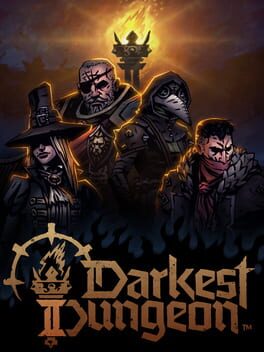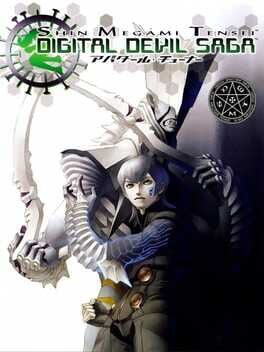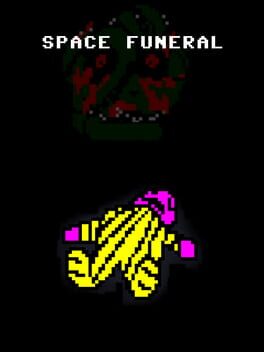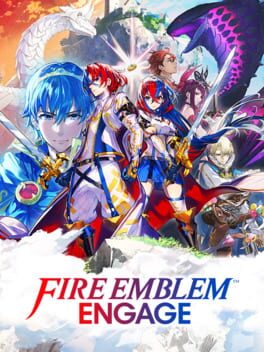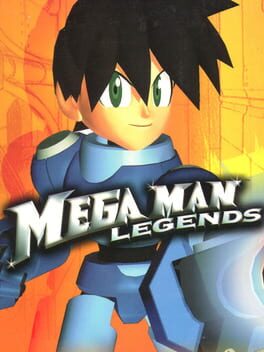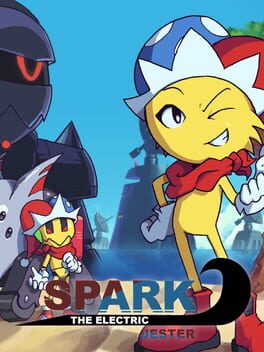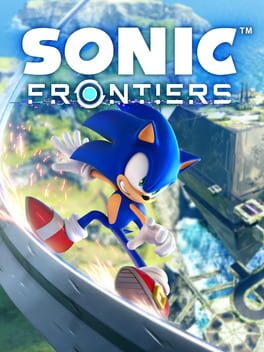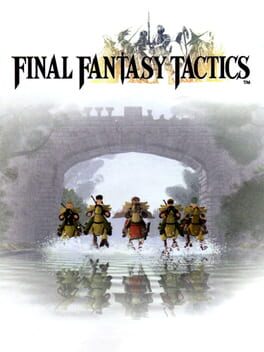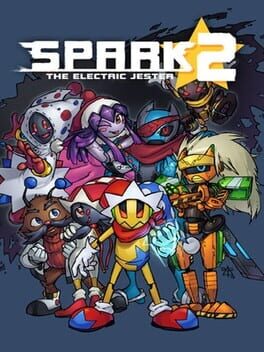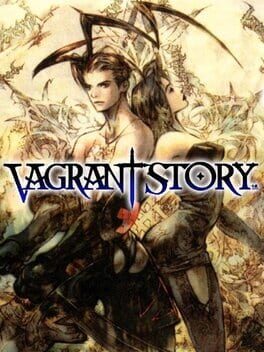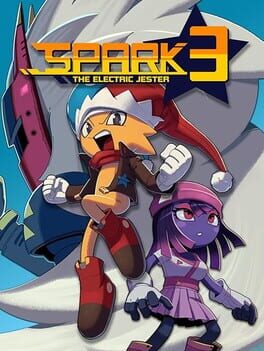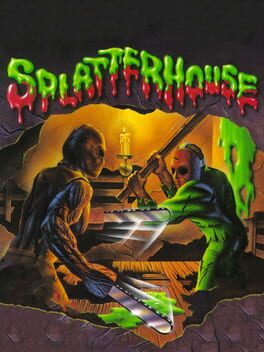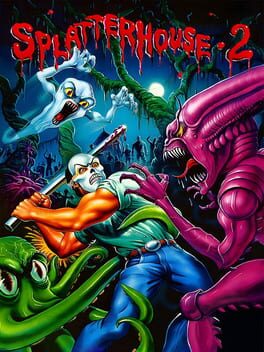Doctor_Nerd
I thought this was really good! Also, these games are too big, and take too much time and manpower to develop, and everyone should stop making them immediately.
I ended up liking ToTK more than BotW due to the dungeons and major questlines feeling more substantial, as well as the emphasis on experimentation to make the silliest weapons and devices possible.
I ended up liking ToTK more than BotW due to the dungeons and major questlines feeling more substantial, as well as the emphasis on experimentation to make the silliest weapons and devices possible.
2021
Having played this and DD1, I think I slightly prefer DD2. Ultimately, I think the highs are not quite as high as the first game, but the lows are not nearly as low.
Both games are very hard, and will take a long time to complete, but I think the run-based nature of DD2 makes the play length easier to swallow. I have an easier time jumping back into this game and remembering what I was doing compared to DD1.
I also like that this game leans into the classes being unique characters with their own backstories. This was only hinted at in DD1, so it always felt very weird to me that I was getting an infinite supply of highwaymen with the same sprites and tragic backstory.
The art style and battle system continue to be sick.
Both games are very hard, and will take a long time to complete, but I think the run-based nature of DD2 makes the play length easier to swallow. I have an easier time jumping back into this game and remembering what I was doing compared to DD1.
I also like that this game leans into the classes being unique characters with their own backstories. This was only hinted at in DD1, so it always felt very weird to me that I was getting an infinite supply of highwaymen with the same sprites and tragic backstory.
The art style and battle system continue to be sick.
I played this game to completion over a decade ago, and was curious to see if it held up. I think it's still pretty good!
The aesthetics, battle system, and music are all fantastic. I really vibe with where the SMT games were at in this era.
This is also the only game in the Megaten franchise that I'm aware of that dispenses with demon negotiation and fusion, and instead has you building and customizing skills and builds for a core cast of characters.
It's interesting to compare this to mainline SMT games, since the opening hours remind me a lot of of a "normal" SMT game. The storytelling is sparse at first, and leaves a lot about the world and setting unsaid initially. The characters are intentionally cold and robotic for the first few hours of the game. The plot and characterization ramps up by the midpoint of the game, but it's not really until the next installment (Digital Devil Saga 2, which is really just part two of the same story) that things really take off.
My two major complaints: I feel like the game drags in the last two dungeons, and also I have no idea what was going through the localization director's head with what they decided to do with one your main party members, Cielo. He is voiced by a white guy doing the most inappropriate and offensive fake Jamaican accent you can imagine. It's like they took some of the most questionable design decisions of the character and doubled down on them as a joke. Playing with an undub mod is recommended just for this reason alone.
If you're a long-time SMT head and haven't played this game yet, I think it's worth your time. It's not quite on the same level as Nocturne for me, but it's close.
The aesthetics, battle system, and music are all fantastic. I really vibe with where the SMT games were at in this era.
This is also the only game in the Megaten franchise that I'm aware of that dispenses with demon negotiation and fusion, and instead has you building and customizing skills and builds for a core cast of characters.
It's interesting to compare this to mainline SMT games, since the opening hours remind me a lot of of a "normal" SMT game. The storytelling is sparse at first, and leaves a lot about the world and setting unsaid initially. The characters are intentionally cold and robotic for the first few hours of the game. The plot and characterization ramps up by the midpoint of the game, but it's not really until the next installment (Digital Devil Saga 2, which is really just part two of the same story) that things really take off.
My two major complaints: I feel like the game drags in the last two dungeons, and also I have no idea what was going through the localization director's head with what they decided to do with one your main party members, Cielo. He is voiced by a white guy doing the most inappropriate and offensive fake Jamaican accent you can imagine. It's like they took some of the most questionable design decisions of the character and doubled down on them as a joke. Playing with an undub mod is recommended just for this reason alone.
If you're a long-time SMT head and haven't played this game yet, I think it's worth your time. It's not quite on the same level as Nocturne for me, but it's close.
2010
This game matters a lot to me, personally, because it made me realize that a game can just be...this. It's a short, funny, experimental game that a human could conceivably make in a (by game dev standards) short amount of time. A game you make doesn't have to look or play like something a big developer would put out!
Games like this obviously predated Space Funeral, but this is the first one I played, and I think the developer's message is clear in a way I appreciate.
Games like this obviously predated Space Funeral, but this is the first one I played, and I think the developer's message is clear in a way I appreciate.
2023
As a tactical game it's better than its predecessor Three Houses, but the story and characters are not as strong. With that said, it easily clears all the other entries from the past decade, and I did end up enjoying when it was a head empty Saturday Morning Cartoon thing. However, there is some pretty laughable stuff towards the latter half of the game for sure. When it tries to lean into more "serious" topics like motherhood and abuse it falls flat on its face.
The Engage system is pretty sick, and leads to some interesting strategies. It would be cool to see elaborated on, but who knows what the next entry in this series looks like at this point.
My main complaint is that I think the Somniel social stuff drags the game down. You can probably ignore it if you don't like it, but it gives you enough advantages in combat that I felt compelled to (lol) engage with it at least a little bit.
The Engage system is pretty sick, and leads to some interesting strategies. It would be cool to see elaborated on, but who knows what the next entry in this series looks like at this point.
My main complaint is that I think the Somniel social stuff drags the game down. You can probably ignore it if you don't like it, but it gives you enough advantages in combat that I felt compelled to (lol) engage with it at least a little bit.
1997
This game was as charming as I remember, but I actually enjoyed the gameplay a lot more than when I played it during my teenage years. This game is surprisingly difficult. You really need to upgrade your gear and weapons to stand a chance against the enemies you encounter.
I don't have anything novel to say about the plot and characters that haven't already been said (the villains are fun, the little robot guys are cute, etc), but it's still really impressive how expressive and well-acted the characters are in the cutscenes to this day.
I don't have anything novel to say about the plot and characters that haven't already been said (the villains are fun, the little robot guys are cute, etc), but it's still really impressive how expressive and well-acted the characters are in the cutscenes to this day.
I've played a fair amount of indie offbrand Sonic-style games, but Spark is my favorite so far. The core mechanics are really solid--the high level pitch is that it's Sonic meets the Kirby games. Spark moves fast through the levels like a blue hedgehog, but he also has alternate forms with unique move sets he can unlock by finding powerups scattered throughout the level. It ends up working really well, and imo better than most games that try to make a more actiony Sonic-style game.
The game is also longer than I expected, but it never outwore its welcome. Every level has its own unique gameplay mechanics that keep the game from getting stale. There are two different campaigns to play as well, both with their own unique mechanics.
I did encounter a few minor bugs playing on Steam Deck, but nothing game-breaking. Definitely worth picking up if you like 2D Sonic games at all.
The game is also longer than I expected, but it never outwore its welcome. Every level has its own unique gameplay mechanics that keep the game from getting stale. There are two different campaigns to play as well, both with their own unique mechanics.
I did encounter a few minor bugs playing on Steam Deck, but nothing game-breaking. Definitely worth picking up if you like 2D Sonic games at all.
2022
I think there's potential for a pretty good game to materialize in a sequel to this one, but as it stands Sonic Frontiers is just okay.
Ultimately I found the open world design in Frontiers just kind of dull. If you've played the first two islands, you've seen most of what the game has to offer. You'll run or grind across a pretty barren landscape collecting trinkets to unlock more parts of the island. Sometimes you'll have to do a pretty rote combat encounter to collect key items, but since the combat feels pretty under-baked, it's not super exciting. I actually ended up liking the small cyberspace challenge areas that are reminiscent of past 3D Sonic games the most. Even these areas aren't as interestingly designed as in they are in the average 3D Sonic title, though.
The game also has some technical glitches, like some pretty egregious pop-up. The draw distance is also pretty bad, and you often can't see key landmarks until you're right up against them. I found this made navigating and figuring out where to go more confusing than it needed to be.
I also have to say that the prestige open-world aesthetic reminiscent of Nier Automata and Breath of the Wild doesn't really do anything for me in a game like Sonic. I think those games were genuinely trying to set a certain tone, whereas this game feels like it is trying to mimic those games out of a corporate mandate. I truly think the energy of this franchise works best the bright colors and upbeat music, not subdued color palettes and melancholy tunes from the world's saddest pianist.
For me the high-points were the over-the-top boss fights that cap each island, along with the goofy rock songs I come to actually expect from a 3D Sonic game. The writing is actually pretty solid for a kid's game too, as your companions like Knuckles, Tails, Amy, etc. get a decent amount of characterization in your conversations with them.
I'm hoping the next big wave of DLC they are planning ends up making me warm up to the game a little bit.
Ultimately I found the open world design in Frontiers just kind of dull. If you've played the first two islands, you've seen most of what the game has to offer. You'll run or grind across a pretty barren landscape collecting trinkets to unlock more parts of the island. Sometimes you'll have to do a pretty rote combat encounter to collect key items, but since the combat feels pretty under-baked, it's not super exciting. I actually ended up liking the small cyberspace challenge areas that are reminiscent of past 3D Sonic games the most. Even these areas aren't as interestingly designed as in they are in the average 3D Sonic title, though.
The game also has some technical glitches, like some pretty egregious pop-up. The draw distance is also pretty bad, and you often can't see key landmarks until you're right up against them. I found this made navigating and figuring out where to go more confusing than it needed to be.
I also have to say that the prestige open-world aesthetic reminiscent of Nier Automata and Breath of the Wild doesn't really do anything for me in a game like Sonic. I think those games were genuinely trying to set a certain tone, whereas this game feels like it is trying to mimic those games out of a corporate mandate. I truly think the energy of this franchise works best the bright colors and upbeat music, not subdued color palettes and melancholy tunes from the world's saddest pianist.
For me the high-points were the over-the-top boss fights that cap each island, along with the goofy rock songs I come to actually expect from a 3D Sonic game. The writing is actually pretty solid for a kid's game too, as your companions like Knuckles, Tails, Amy, etc. get a decent amount of characterization in your conversations with them.
I'm hoping the next big wave of DLC they are planning ends up making me warm up to the game a little bit.
Continuing my Spark Journey. While Spark 1 was an offbrand 2D Sonic, Spark 2 goes the 3D Sonic route.
Spark 2 does an admirable job of capturing the energy the Sonic Adventure games had. Unfortunately, I found the controls a bit too loose and slippery for my liking (3D Sonic games also have this problem sometimes). This made the more precise platforming segments later in the game pretty frustrating. Having the ability to use the shoulder buttons to nudge Fark left and right while running like in later 3D Sonics would have made a huge difference for me.
Even with all that aside, this is still a pretty impressive effort for a game where the lion's share of the design is made by a single person. Looking forward to Spark 3.
Spark 2 does an admirable job of capturing the energy the Sonic Adventure games had. Unfortunately, I found the controls a bit too loose and slippery for my liking (3D Sonic games also have this problem sometimes). This made the more precise platforming segments later in the game pretty frustrating. Having the ability to use the shoulder buttons to nudge Fark left and right while running like in later 3D Sonics would have made a huge difference for me.
Even with all that aside, this is still a pretty impressive effort for a game where the lion's share of the design is made by a single person. Looking forward to Spark 3.
2000
This is a pretty significant improvement from Spark 2 in terms of controls. Spark feels a lot more responsive than his robot frenemy Fark ever did.
You're getting a good amount of game here, since Spark 3 also includes all the Spark 2 stages, in addition to a lot of optional challenge stages and collectables to find in each level. It's a good capper to this trilogy of off-brand Sonic games.
You're getting a good amount of game here, since Spark 3 also includes all the Spark 2 stages, in addition to a lot of optional challenge stages and collectables to find in each level. It's a good capper to this trilogy of off-brand Sonic games.
Never thought I'd be interested in a mech game like this, but the trailers and my curiosity won me over. Controlling a robot that moves like it has a jetpack strapped to its back while on roller skates is, in fact, pretty cool.
Also I was more invested in the story than I thought I'd be. Plenty of cool moments and nice characterization touches.
Also I was more invested in the story than I thought I'd be. Plenty of cool moments and nice characterization touches.
1988
This review contains spoilers
Splatterhouse feels like the "road not traveled" for what beat-em-ups could be, as this game has more in common with something like Altered Beast than the more popular Konami/Capcom-style of beat-em-up.
The gameplay is pretty simple--you move left to right on a single plane while killing a stream of enemies that charge at you, all while avoid some pretty basic obstacles. It's pretty straightforward, but it never stops being satisfying hitting an enemy with a melee weapon and watching them gorily explode over a wall in the background.
There are also pretty neat set-pieces throughout the game that keeps the pretty basic gameplay from getting stale. At the end of an early level, there's a room filled with possessed furniture you have to smash your way out of. In a later level, you have to battle a shadow clone of the player character that continually emerges out of a hall of mirrors. The bosses are pretty brutal in general as well, but it never gets to the point of unfair, for the most part.
Surprisingly, Splatterhouse also has some quietly sad moments that still stuck with me after beating it (the short scenes that play after beating Stage IV and V being the standouts here). These moments are all enhanced by the excellent soundtrack. The haunting music box-style theme that plays at the end of the game, as Rick stands over the wreckage of the house he spent the game in, is going to be etched in my memory for a while.
It's still a goofy horror pastiche with over-the-top gore, but I found it charming. I'd recommend giving it a shot if you like arcade brawlers at all.
The gameplay is pretty simple--you move left to right on a single plane while killing a stream of enemies that charge at you, all while avoid some pretty basic obstacles. It's pretty straightforward, but it never stops being satisfying hitting an enemy with a melee weapon and watching them gorily explode over a wall in the background.
There are also pretty neat set-pieces throughout the game that keeps the pretty basic gameplay from getting stale. At the end of an early level, there's a room filled with possessed furniture you have to smash your way out of. In a later level, you have to battle a shadow clone of the player character that continually emerges out of a hall of mirrors. The bosses are pretty brutal in general as well, but it never gets to the point of unfair, for the most part.
Surprisingly, Splatterhouse also has some quietly sad moments that still stuck with me after beating it (the short scenes that play after beating Stage IV and V being the standouts here). These moments are all enhanced by the excellent soundtrack. The haunting music box-style theme that plays at the end of the game, as Rick stands over the wreckage of the house he spent the game in, is going to be etched in my memory for a while.
It's still a goofy horror pastiche with over-the-top gore, but I found it charming. I'd recommend giving it a shot if you like arcade brawlers at all.
1992
I ended up really liking the first Splatterhouse, so it was a little bit of a bummer bouncing off its sequel. Unlike its arcade predecessor, Splatterhouse 2 is a console exclusive, and it feels like the devs worked overtime to bump up the game difficulty so the people playing it at the time couldn't beat it in a weekend.
The main character, Rick, was always slow and ponderous to control in the first game, but it generally felt tuned to match your move set. In Splatterhouse 2, I was really straining against what the game design expected of me versus how sluggish Rick is to control. Enemies felt quicker and more aggressive this time around, and often I felt like I didn't have enough time to react and move Rick out of harm's way before eating shit. It's one of those games that really incentivize rote memorization to beat some segments (looking at the elevator segments in particular). There's also less enemy variety overall than in Splatterhouse 1, so you're going to be punching the same weird looking-alien guys a lot.
When you combine that with the fact that you have limited lives, and can't pump virtual quarters into MAME or whatever to breeze past segments, it just compounded the frustration for me. You're going to die and get booted to the beginning of the stage a lot.
I actually wished I like this game more, because there are definitely some cool parts. The bosses in general are more interesting than the first game (outside of one or two really horrendously bullshit ones), and the music continues to be stellar. The plot is also pretty basic, but I do like that it deals with un-fucking Rick's life after the events from the first game. These games do tell a complete story over all three of its installments, which is rare to see in beat-em-ups. Overall though, this was a game I enjoyed way more watching someone else play on Youtube.
The main character, Rick, was always slow and ponderous to control in the first game, but it generally felt tuned to match your move set. In Splatterhouse 2, I was really straining against what the game design expected of me versus how sluggish Rick is to control. Enemies felt quicker and more aggressive this time around, and often I felt like I didn't have enough time to react and move Rick out of harm's way before eating shit. It's one of those games that really incentivize rote memorization to beat some segments (looking at the elevator segments in particular). There's also less enemy variety overall than in Splatterhouse 1, so you're going to be punching the same weird looking-alien guys a lot.
When you combine that with the fact that you have limited lives, and can't pump virtual quarters into MAME or whatever to breeze past segments, it just compounded the frustration for me. You're going to die and get booted to the beginning of the stage a lot.
I actually wished I like this game more, because there are definitely some cool parts. The bosses in general are more interesting than the first game (outside of one or two really horrendously bullshit ones), and the music continues to be stellar. The plot is also pretty basic, but I do like that it deals with un-fucking Rick's life after the events from the first game. These games do tell a complete story over all three of its installments, which is rare to see in beat-em-ups. Overall though, this was a game I enjoyed way more watching someone else play on Youtube.

